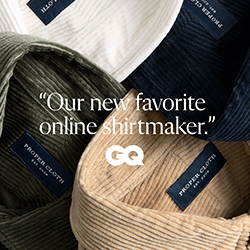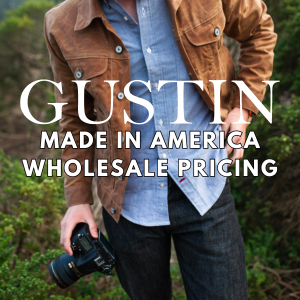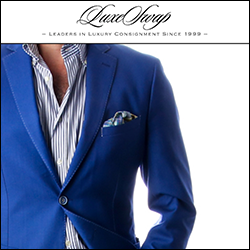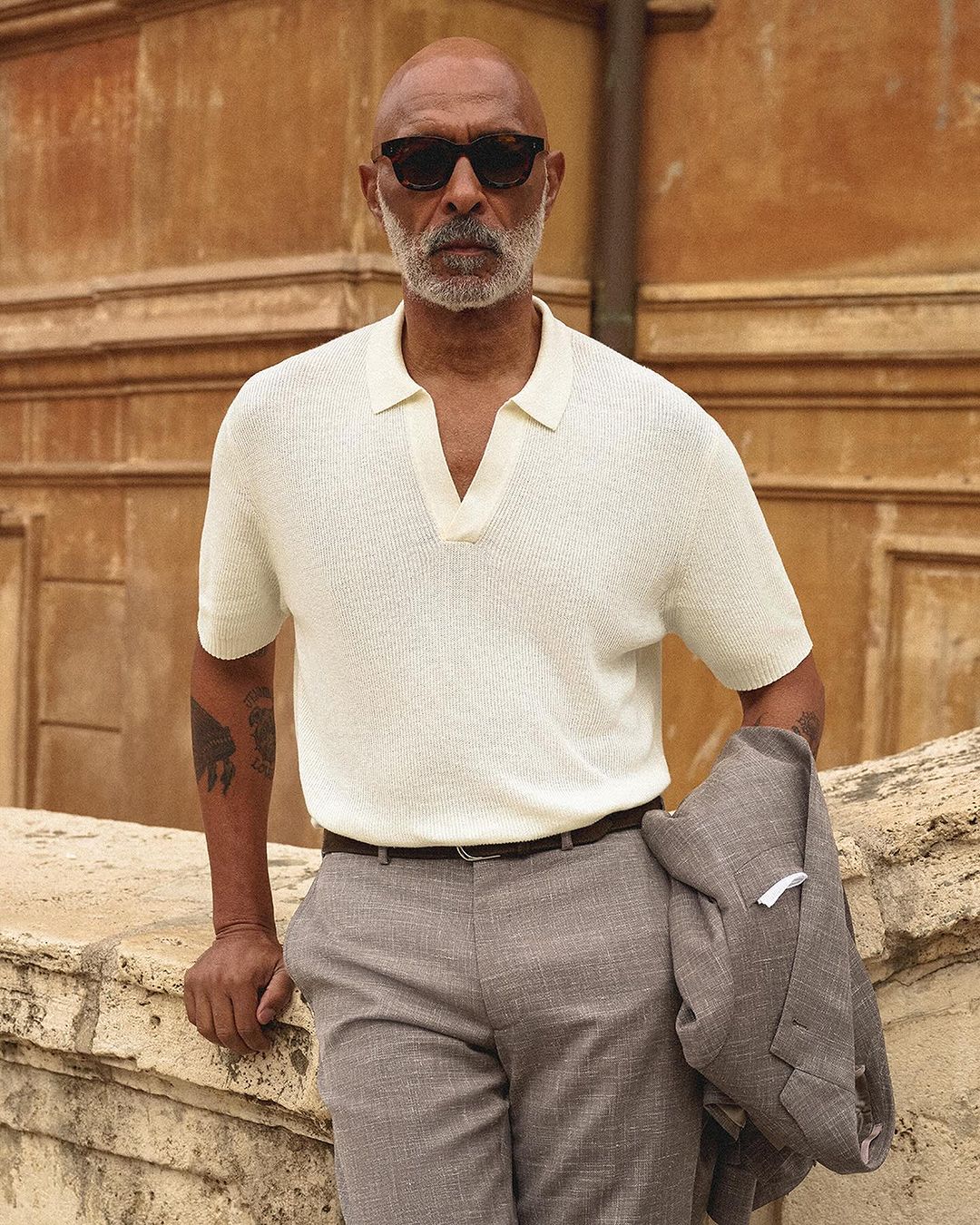
Put This On wouldn’t be possible without the support of our sponsors. So, twice a month, we like to give them a shoutout. Doing so allows us to recognize them for their support and update our readers on our sponsors’ special happenings. And since spring is here, there’s a lot happening.
As the weather is now quickly warming, Proper Cloth put together a page for early spring trends, which you can use to get some styling ideas. The page is full of things that can be easily mixed and matched: soft, lightweight suits and sport coats made with minimal lining for maximum breathability, cut from airy materials such as linen blends. You can wear any of their sport coats with a pair of light-washed jeans, a soft plaid shirt or Johnny collar polo, and almost any kind of casual footwear (e.g., all-white sneakers, brown leather loafers, or even a pair of canvas espadrilles).
Since Proper Cloth is an online made-to-measure shirtmaker, you can use their fabrics to design any shirt you want. However, if you’re looking for some short-sleeve button-ups, they also put together a page for materials that they think would work especially well. Short-sleeve button-ups are often best in casual fabrics, such as seersucker, linen, or rayon, rather than the poplins and broadcloths you’d typically wear for dressier designs. When teamed with something like Proper Cloth’s camp collar, you can wear this with shorts, chinos, jeans, or even a pair of loosely cut linen trousers. Proper Cloth allows for a free remake on all first-time orders, so you can also ensure the perfect fit.

It has been almost 20 years since raw denim became a “thing” on the internet, back when bloggers were posting guides about how to wash your jeans in bathtubs or at the beach. And yet, decades later, a pair of raw denim jeans is still one of the most useful things you can add to a wardrobe. The reason is simple: raw denim allows you to create your own fades. Despite all the available modern technology, artificially produced fades still don’t look as authentic—or awesome—as natural ones.
Unfortunately, most raw denim jeans can be expensive, making the jump prohibitive for many people. It’s not uncommon to find prices starting around $200—even $300 for such jeans is pretty normal. Gustin is one of the few places where you can get made-in-USA jeans, produced from raw denim that was woven either in the United States or Japan, for under $100. They’re able to do this because they sell everything directly to consumers using a pre-order system, which minimizes waste (i.e., unsold inventory, which has to be accounted for) and markups (e.g., distributors and retailers). You can find jeans on their site starting at $79.
If you’re willing to spend a little more, you can also get some pretty unique fabrics. At the moment, they have a pre-order window open for jeans made from natural plant-based indigo. Most jeans are made from machine-dyed synthetic indigo denim; hand-dyed natural indigo raw denim jeans are rarely sold because they are too labor intensive (and thus costly). The upside? Machine-dyed synthetic indigo tends to sit on the surface of the yarn, whereas natural indigo penetrates the yarn more deeply. This means it takes a little longer to fade, but when it does, the fades are often more vivid (as you can see above). Gustin is offering natural indigo-dyed jeans for just $156—a fraction of what you’d find in stores.

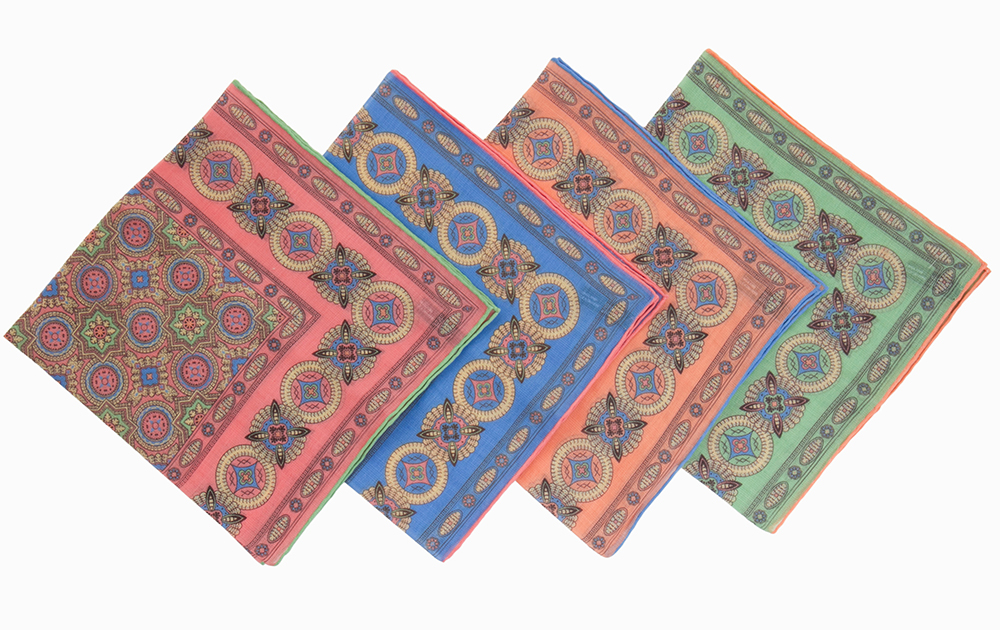
The decades-long slide into business casual has made men shed all of the layers that made the traditional coat-and-tie aesthetic worthwhile in the first place. First, men shed their jackets, then their ties, and now, some even traded their dress shirts for more casual attire like the pique polo. What remains is a sad, desperate attempt at respectability, but without any of the flattering, face-framing effects of quality tailoring. Outfits often look … limp.
We’ve long been advocates of wearing a tailored jacket, whether that be a suit jacket or sport coat. Tailored jackets are unique in that they’re built from multiple layers of haircloth, canvas, and padding, which are sewn together using specialized techniques such as pad stitching. This gives them a three-dimensional shape that’s hard to achieve through casualwear.
Once you have the jacket, it’s your choice whether you want to decorate it. However, a formal suit without at least some bit of neckwear is like the night sky without stars (casual suits such as those made from cotton or linen are easier to wear with an open collar). Dapper Classic has some handmade, self-tipped neckties at the moment that they imported from Italy. These are available in spring-appropriate colors—cheerful but still tasteful. Perfect for summer weddings. At the very least, if you decide to go open collar, decorate your jacket’s outbreast pocket with a pocket square. A jacket needs something.

It’s no secret that it’s much easier to dress in the colder months when you can wrap yourself in Balmacaan coats, chunky knits, and cashmere scarves. But when the weather is too warm for layering, you have to find ways to make simple button-ups and pants interesting. One way is to ditch your basic Oxford cloth button-downs for things such as camp collar shirts made from silky Tencel blends, Ivy-inspired popovers cut from madras or seersucker, or even rely on linen shirts, where the fiber’s tendency to hold wrinkles will give an outfit a bit more texture.
Spier & Mackay has all those this season, starting at $58. In the last few years, they’ve built a cult online following by offering the classic and classic-adjacent styles you’d expect from more expensive heritage labels but sold here for much less. They don’t just have madras shirts—they have seven different iterations, including charming patchwork designs. And at $58, they even come with white river shell buttons (better than the plastic buttons you’d likely find at the mall).
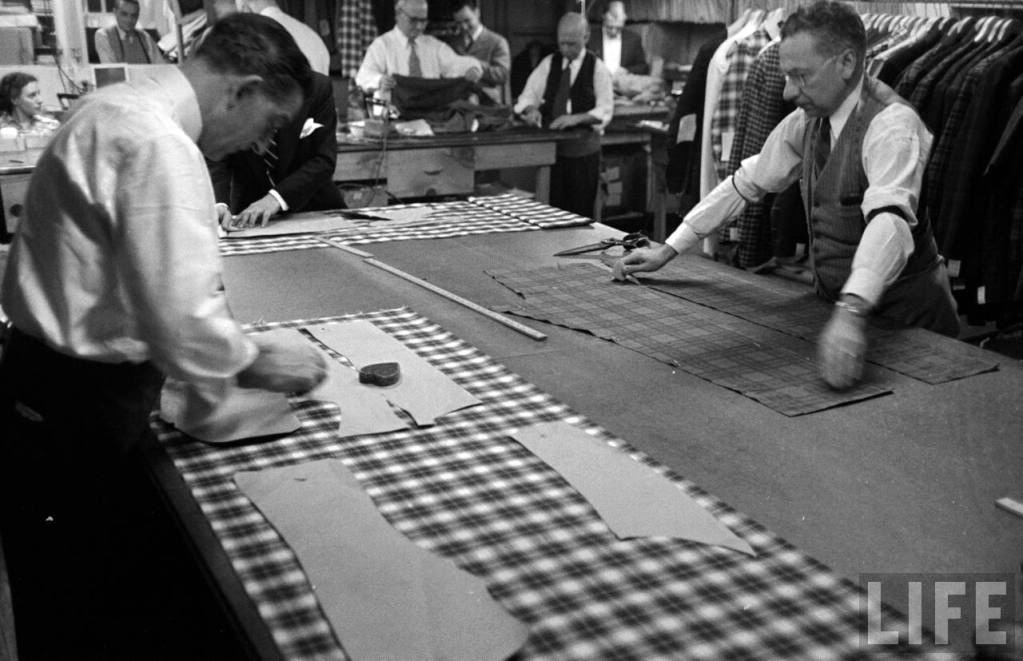
Chipp is an old Ivy-era clothier who’s dressed the likes of JFK and Andy Warhol, and since they’ve been around the New York garment trade forever, they also have access to some of the city’s best tailors. If you’re in NYC, they can make you a custom garment, but for shoppers online, they also have both ready-made and custom-order accessories. Their standard ties, for example, measure 3.25″ x 58″, but they can also shorten, lengthen, widen, or narrow ties for just $10. To place an order, go to their site and order one of the 60″ or 62″ ties. Then, in the comment section, specify exactly what you want (say, a 3″ x 60″ tie). The turnaround time for custom orders is two weeks. And like everything Chipp sells, these are fully made in NYC.
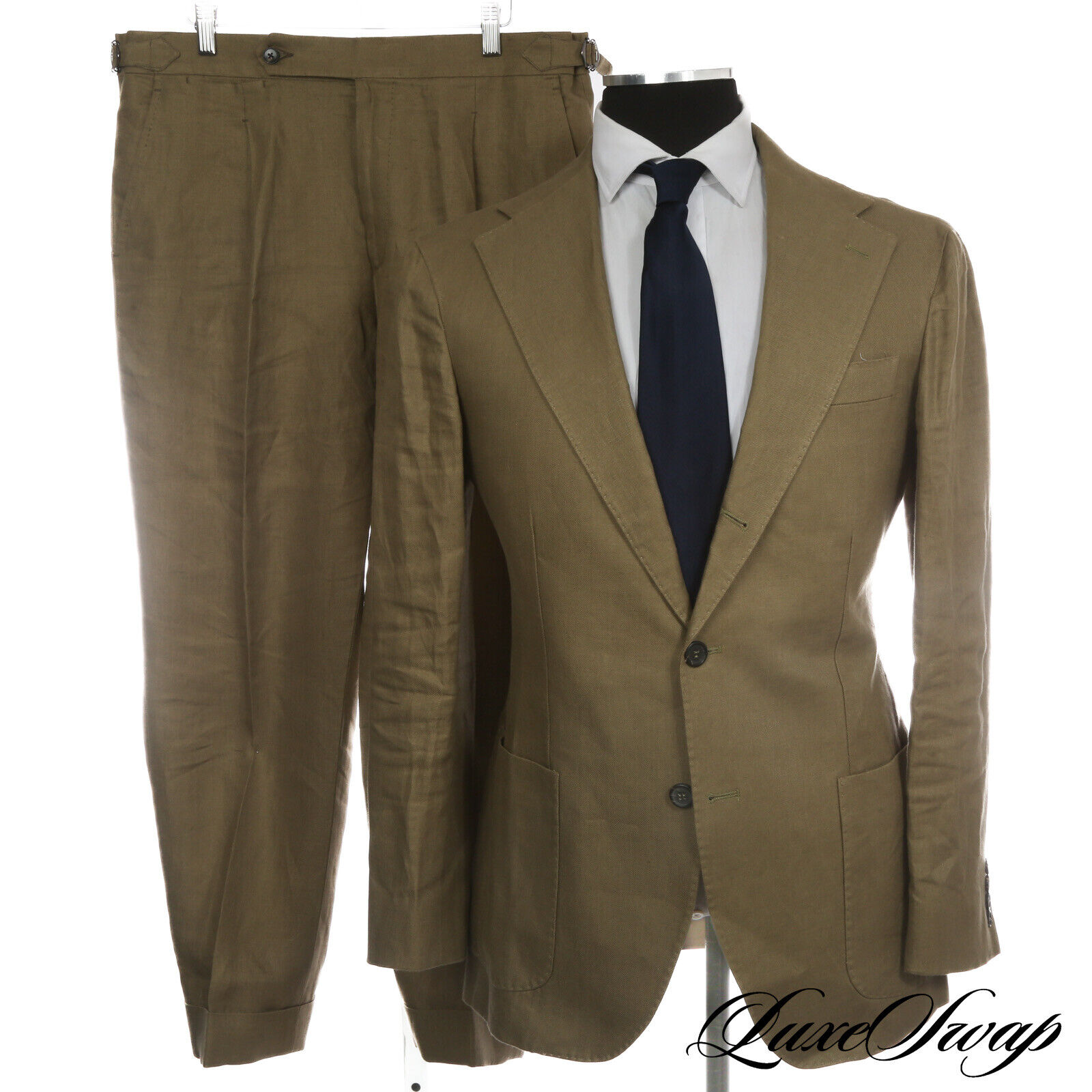
If you’re looking to build a wardrobe on a budget, you won’t be able to find better deals than at LuxeSwap. They’re an online consignor for high-end menswear. Founded by longtime StyleForum member and inveterate thrifter Matthew Ruiz, they sell the kind of things you’d find at leading boutiques such as Self Edge, The Armoury, and No Man Walks Alone. However, since these are typically second-hand goods—sold through ten-day auctions that start at just a penny—they cost a lot less than what you’d pay at full retail.
New auctions go up every Thursday, so there’s typically a lot to wade through at any given moment. An easy way to break things down is by searching for #1 Menswear, which allows you to see the best of the best. At the moment, they have things such as Malo cashmere knits, Mister Freedom work shirts, Nicks work boots, Natalino suits, and Tom Ford side-zips.
Lastly, for long-time menswear forum guys, LuxeSwap recently bought out all the stock for a recently closed-out store (a name that’s legendary on the forums). Those looking for high-end socks and pajamas should keep an eye out.
